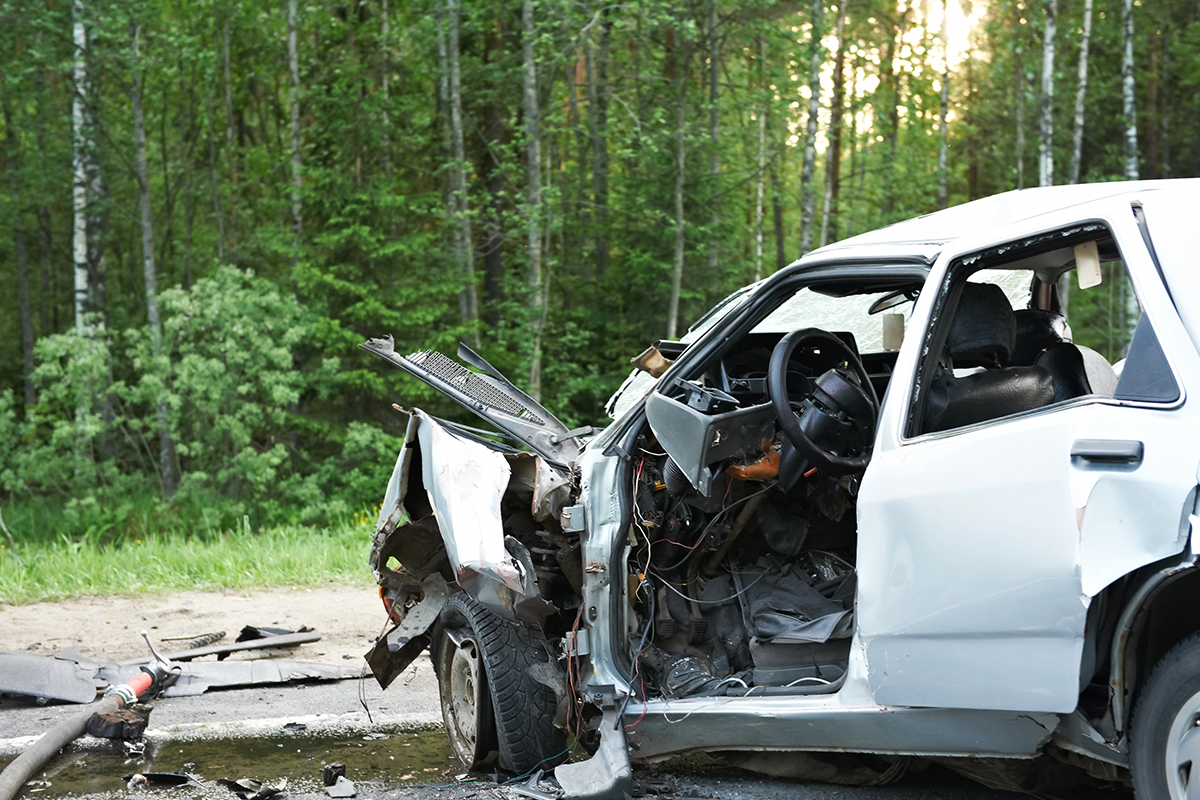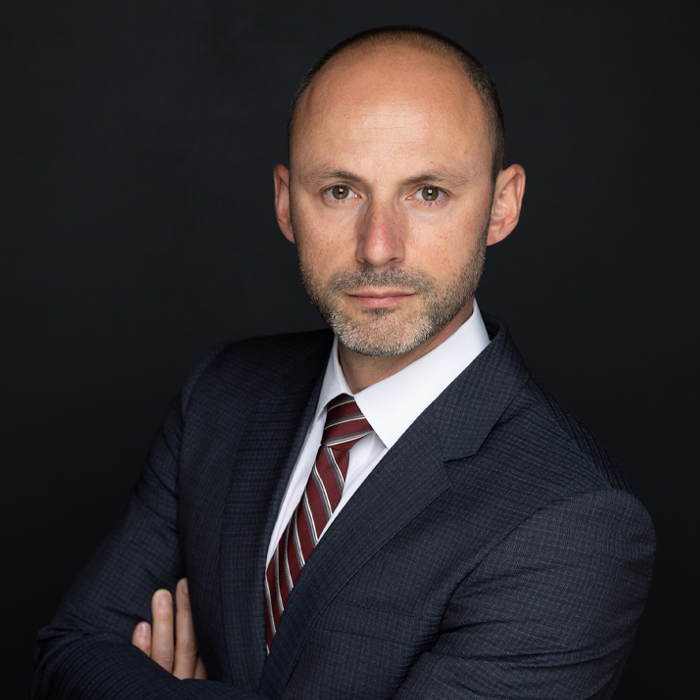If you are facing failing to stop at scene of an accident charges, you need a criminal defence lawyer in Calgary to look at your case as soon as possible.
If you are charged with not stopping or staying at the scene of an accident under provincial law, you could be fined up to $2,000 and/or go to jail for up to six months. For more details on jail implications, you might want to review our Jail Sentence in Calgary page.
If you are found guilty of not stopping after an accident as a criminal code offence, you could go to prison for up to ten years if the Crown goes ahead with an indictment. If you are found guilty by summary conviction, you could spend up to two years in jail.
- If someone was hurt as a result of your actions, you could face a maximum sentence of 14 years. See more on sentencing guidelines in our Criminal Sentencing Calgary section.
- If you don’t stay at the scene of an accident where someone dies, you could spend the rest of your life in prison.
Strategic Criminal Defence is a top Google-rated criminal defence firm in Calgary, with over 500 5-star reviews. Our firm, and our experienced legal team, have defended clients in over 10,000 criminal cases. Leveraging our extensive network of lawyers and decades of experience, we craft defence strategies to help those accused of failing to stop at the scene of an accident beat the charge.
The lawyers at Strategic Criminal Defence are both highly experienced and dedicated to defending your rights and future in the face of these charges. Contact a lawyer today by calling (403) 719-6410.
Key Takeaways
- Section 320.16 of the Criminal Code says that you can’t leave the scene of an accident without stopping to give your information and help the people who were hurt.
- No matter what caused the accident, whether it was another car, a person, or just damage to property, you have to stop.
- This is a hybrid offence, which means that the Crown can either proceed by indictment or summary.
- If no one gets hurt, the most severe punishment is five years in prison. If someone is injured as a result of your actions, the most serious punishment is ten years in prison. If your actions resulted in someone’s death, you can face life imprisonment.
- If you can show that you didn’t know about the accident, weren’t the driver, or left to get help, you can win your case.
- If you are found guilty, you will have a criminal record and may not be able to drive. You need to hire a lawyer.
- People who break the law for the first time and don’t hurt anyone may get shorter sentences, but people who hurt or kill someone are more likely to go to jail.
How Our Lawyers Help With a Failing to Stop at Scene of an Accident Charge
We can help you talk to the police, who usually want to know what you know about the accident and why you left.
When you are facing these charges, it’s very important to collect evidence.
- Our team will get accident reports, video from security cameras, or estimates of how much damage was done to the car that could help defences like, not knowing an accident happened.
- We could hire expert witnesses, such as accident reconstruction experts, to argue against the Crown’s version of events, or medical experts to explain why you may not have known about the accident.
These cases are very hard to understand, and they can have serious effects, like going to jail or losing your driver’s licence. That’s why our lawyers will handle the legal system for you.
Examples of Failing to Stop at Scene of an Accident Charges
In Calgary, you could be charged with hit and run in these real-life situations:
- A car hits a person walking in a crosswalk and hurts them. Instead of stopping to help or give information, the driver speeds away. Later, the police use video from security cameras to figure out what kind of car it was and locate them.
- A driver hits a parked car on the side, breaking its door and mirror. Then, without leaving a note with their contact information, they drive away quickly. A witness writes down the licence plate number, which leads to charges of not stopping after an accident that damaged property.
- A truck driver hits a light pole in a parking lot and knocks it over. The driver sees the damage but doesn’t tell the police or the person who owns the property. Later, when security cameras catch them, they are charged.
Consequences of a Failing to Stop at Scene of an Accident Charge
If you get charged with not stopping after an accident in Canada, it can have a big impact on your life for a long time.
- Not stopping at the scene of an accident in Canada is a hybrid offence. The Crown prosecutor can choose to go ahead with an indictment (for more serious cases) or a summary conviction (for less serious cases). The Crown usually makes a decision based on how bad the accident was, whether anyone was hurt, your driving history, and how you left the scene.
- If you don’t stop at the scene of an accident and no one is hurt, but you are charged by indictment, you can spend a maximum of five years in jail. If processed as a summary offence, the maximum sentence is two years. Learn more about potential jail terms on our Jail Sentence in Calgary page.
- If the accident hurts someone else as a result of your actions, the maximum sentence is 10 years. If the accident killed someone, you could spend the rest of your life in jail.
- The accompanying fines can be anywhere from a few thousand dollars to tens of thousands of dollars, depending on the situation. For detailed information on fines, visit our Fine Lawyers Calgary page.
- Having a criminal record if you are found guilty, can make it harder to get a job and travel to other countries, especially the US.
- In addition to any criminal penalties, provincial driving authorities can also suspend your licence and give you points on your record.
Failing to Stop at Scene of an Accident Charge Defences
In Canada, it’s scary to be charged with not stopping at the scene of an accident, but there are a number of legal defences that apply to you.
If you’re being charged with not stopping at the scene of an accident, here are some of the most common ways to defend yourself:
- Knowledge: The Criminal Code says that you had to have known or not cared if an accident happened. Most people wouldn’t even notice some accidents because they are so small. If you lightly bumped into a car in a parking lot and didn’t feel anything, or if the road conditions or noise from the car made it hard for you to hear or feel a small crash, you might have a good defence.
- Identity issues: The police sometimes arrest the wrong person for a hit-and-run. If you weren’t driving when the accident happened, this is a defence. This could happen if someone borrowed your car, stole it, or thought you were someone else.
- Reasonable Excuse: The law says that you can have a “reasonable excuse” for not stopping after an accident. If you had to leave the scene for a good reason, this could happen. You might have a good reason if you were in a hurry to get an injured passenger to the hospital after an accident or if you left for a short time to get cell phone service to call for help. You need to prove that what you did was reasonable given the situation.
Failing to Stop at Scene of an Accident Charge Investigation
If the driver leaves the scene of an accident, the police will start a full investigation.
- These investigations start by collecting physical evidence. This can include broken glass, paint chips, vehicle parts, and tire marks that might help them figure out what kind of vehicle it was.
- Witness statements are very important for these kinds of investigations. The police talk to everyone who saw the accident and ask them what kind of car it was, what colour it was, and if they saw any part of the licence plate. They also try to get descriptions of the driver when they can.
- If the police see a partial or full licence plate, they can search vehicle registration databases to see if they can find a match. After that, they go to the homes of the people who own the cars to see if any of them have been damaged in a way that fits with the accident.
- When the police need help with a very serious case, like one that hurts or kills someone, they may ask the public for help through the news and social media. They could also check out local repair shops because broken cars often need help from a pro to get fixed.
Bail Conditions for Failing to Stop at Scene of an Accident Charges
If you are released on bail, you have to follow certain conditions while you wait for your trial.
- Most of the time, the most important condition of your bail is that you can’t drive. The court might only let you drive to work, see the doctor, or take care of the kids. Although, your province’s driving authority may suspend your licence.
- While on bail, you will probably need to check in with a police station or bail supervisor regularly.
- You probably won’t be able to talk to the victim or their family if the accident hurt them, even if you are trying to apologize.
- If your case has to do with drugs or alcohol, the court may order you not to drink alcohol, use drugs, and stay away from bars and clubs.
- The court may tell you that you can’t leave the province or a certain area until your case is over. In the most serious cases, you might have to give up your passport so you can’t leave the country.
- If you have a history of driving offences or if the accident was really serious, the court may ask for a surety. A surety is someone who agrees to watch over you and lose a certain amount of money if you break the rules of your bail.
If you break any of these bail rules, you will be charged with a new crime and your bail will be taken away. You will then have to stay in jail until your trial is over.
For more information, visit our page on The Bail Hearing Process in Calgary.








